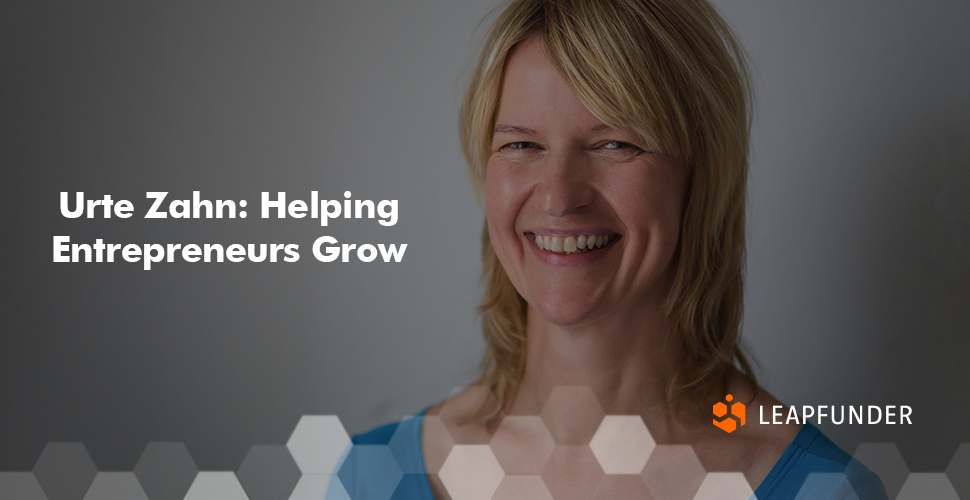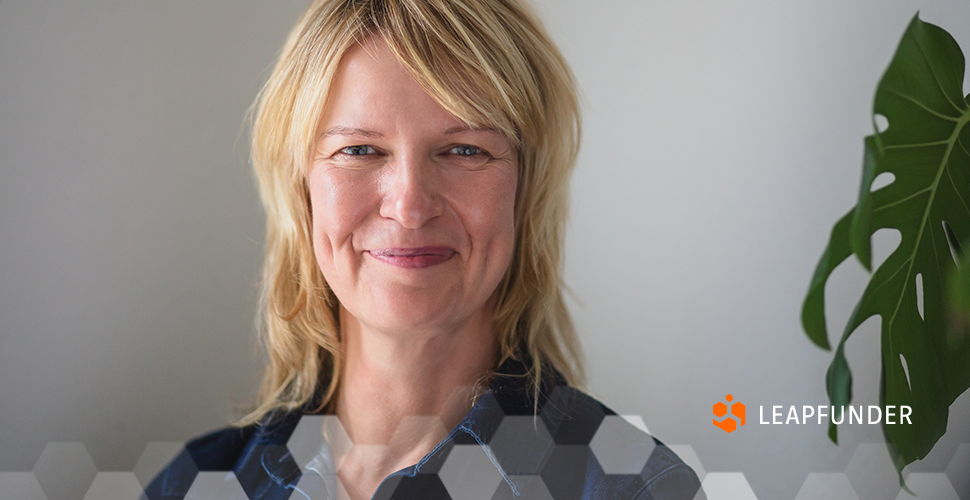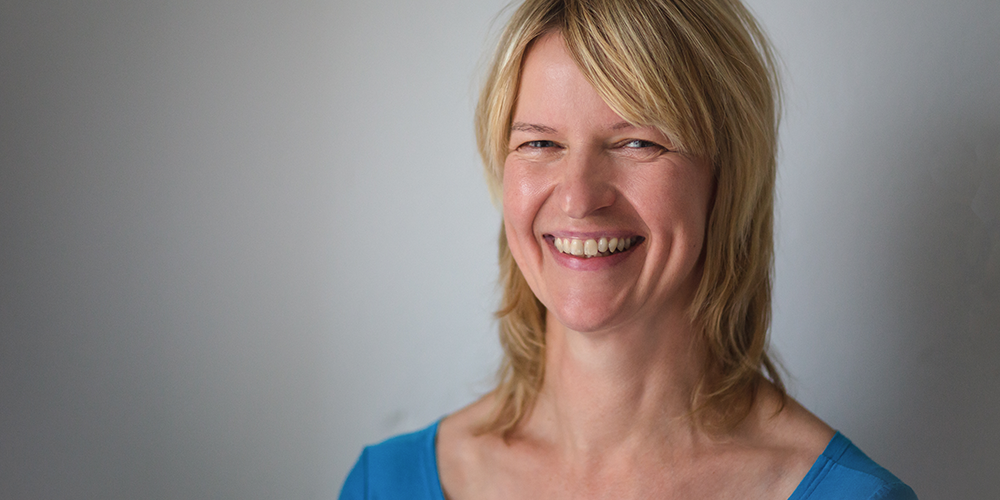Urte Zahn sees herself as a sparring partner, especially for female founders, by providing strategic business and mental support as a coach, mentor, or advisory board member. With 25 years of professional and leadership experience, she guided over 30 startups as they grew and founded three successful startups herself. Find out which advice for founders she shared with us, what’s going on in the startup ecosystem in Berlin, and what she predicts for the near future.

1. Hi Urte. Thank you for agreeing to do the interview. Could you please tell us about your background and connection to the startup world?
My pleasure. I’m a very curious person with a broad background. When I need help understanding things, I always ask questions. This is how I’m still learning every single day. I walk through life with my eyes open, fascinated by what happens. I also always ask myself if and how I can contribute.
When it comes to my education, I learned Agriculture and studied Business Economics, and I have a master’s in Energy Management, which means I’m also an engineer. Regarding my work experience, I spent 25 years in IT. While working for big companies, I founded my own startup with one of those companies and found myself in the middle of the startup scene.
My conclusion was that technology is never the problem, but people often are. People have barriers, face challenges, and sometimes have no idea how to move forward. I found this very interesting and decided to dedicate my time to helping entrepreneurs grow.
2. You’re a University Lecturer, a founder, a coach, and an advisory board member. Tell us about your current mission. What’s motivating you now, and what would you like to achieve?
I work in all these areas, and I try to encourage a shift towards more regenerative businesses and sustainable relationships. I do this when coaching, lecturing, at the advisory board, Friends for Future, and working on my business.
When I try to help startups, I first listen and try to understand their challenges and culture. It’s often unclear that if you start to build a startup, you have already set the foundation for the culture. This culture is influenced by values, interactions, founders’ personalities, and cultural backgrounds. For example, Germans are known as perfectionists, which comes with costs. If you first make your product perfect and then put it on the market, it could be that everyone else is already ahead of you.
Working with different personalities and cultures enriches my life, and seeing founders grow, especially female founders makes me proud.
3. What’s going well in the startup ecosystem in Berlin at the moment? What’s the ecosystem lacking? How do you feel you’re contributing?
The ecosystem got more mature. There are many VCs and business angels in the market, and they specialize in different areas, so they have more expertise on board.
There is also a rise in female founders in Germany. I currently work for an accelerator, and about 50% of the founders are female. Besides that, I see a lot of diverse founders, not only in culture but in age. There are many older founders nowadays, and I like supporting that.
When it comes to what’s the ecosystem lacking, I think early founders try to skip certain steps because they believe they need to be faster. For example, they skip the stage of asking potential users for feedback. Later, they have to invest the time to do that, or they fail, even though it’s much easier to find out early on.
I’m contributing by guiding or accompanying the founders and brainstorming with them. Helping them resolve conflicts in the founder team, improving their finance strategy, or getting rid of pitching bottlenecks. I listen to what they want and need and think of bolder steps they can take in the next couple of days.

4. You founded three successful startups and guided more than 30 as they grew. Which advice for founders would you share with our readers?
There are some virtues that are good to have for every startup founder:
- You need to have the courage to stand up, talk, and pick up the phone. Every founder is a seller. You can always ask yourself: “What is the worst that can happen?” In the worst-case scenario, someone will hang up.
- Secondly, endurance will make you keep going even if you’re going through an emotional roller coaster. And you will.
- The third virtue is experiencing joy when it comes to creation and innovation. The burnout rate for founders is above the average. Founders are ready to self-exploit, and their health suffers – so mental health needs as much attention as physical health. I run mental fitness programs and help founders shift from the critical inner dialogue to creativity and innovation, where they can handle things from an open perspective. I help them with mindfulness practices that facilitate impactful decisions.
5. What do you predict for the startup ecosystem in Berlin in the near future?
I see that not everybody is an entrepreneur. With the layoffs in the tech environment happening, everybody wants to be an entrepreneur. This also comes with costs. We need people in different environments for the ecosystem to work. I hope this is what will happen in the near future.
Also, in the startup community, there are many bubbles. For example, the digital marketing bubble or the climate transition bubble. What we need is more connections between them so that founders can take advantage of other bubbles.
Furthermore, investors say that the founder team is number one, but they don’t pay much attention to it. And sooner or later, it causes stress. So VCs and business angels ask me to support the founder team to improve peak performance, inner peace, and healthy relationships – to shift from negative emotions to a positive mindset.
The positive thing in the current ecosystem is that more companies serve startups now, like Canva. When I started my first startup, I had to do everything myself. However, this is quite non-transparent at the moment, kind of like a jungle. I hope for some transparency in the future.
Besides mental fitness, one topic that interests me is sustainability, and it’s underestimated. There will likely be more startups in that direction soon. The VCs have to care about sustainability, which is also why it should matter more to founders.
For me, the future is diverse, and I love that. I’ll keep contributing through a positive mindset and sustainability or even regeneration.
Thank you very much for sharing your story and opinions, Urte. We wish you the best of luck in your future endeavors.
Join our network of startups & investors!


